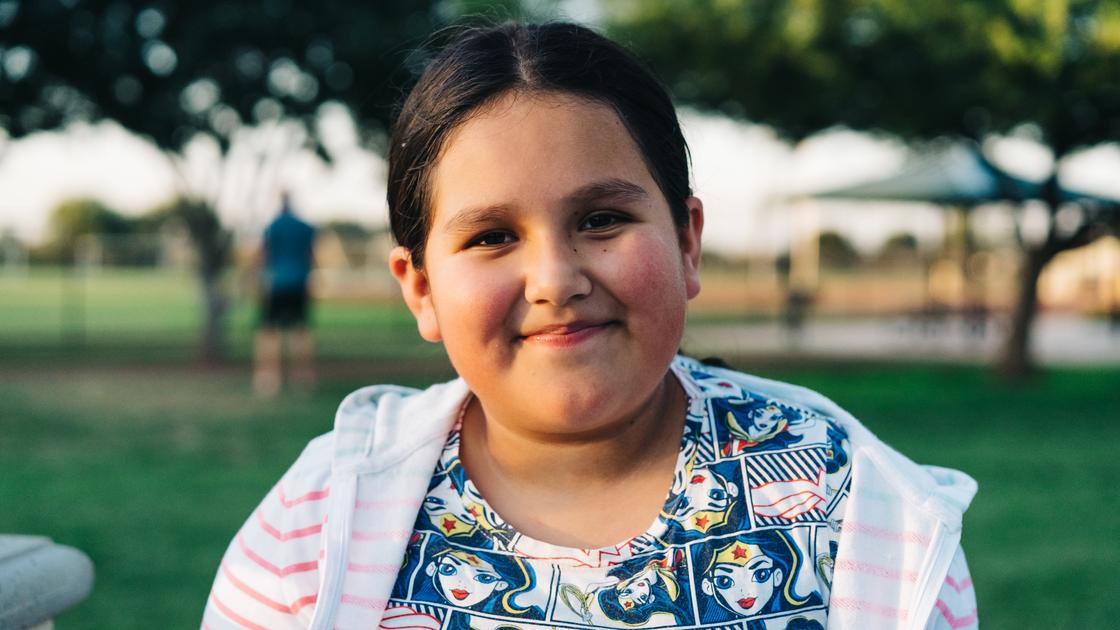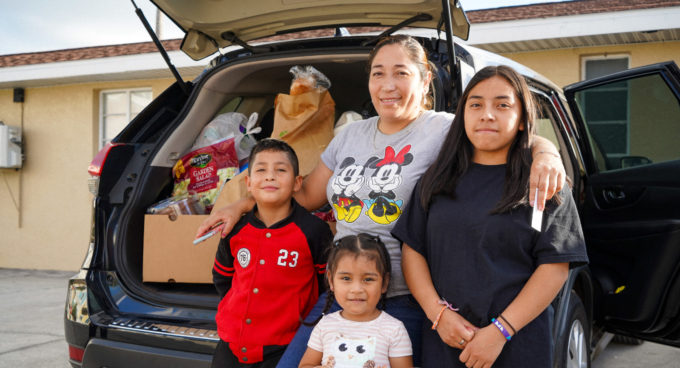Hunger hurts kids physically, emotionally, and academically. Children who are food insecure miss more days of school and experience more behavioral problems than their classmates. Years of missed meals lead to serious consequences that extend far beyond childhood.

Marilyn and her siblings go to a local community center for breakfast and lunch every weekday during the summer.
Yet child hunger remains a widespread issue in the United States. In 2019, almost 11 million children experienced food insecurity. Due to the COVID-19 pandemic, Feeding America projects that this number grew to 15 million in 2020. Children of color and kids in rural communities are especially hit hard by food insecurity due to systemic racism and limited infrastructure.
Child hunger is serious and also solvable. We can take steps to ensure all children have enough to eat. Recent legislation has made significant investments in nutrition programs like the Supplemental Nutrition Assistance Program (SNAP) and Pandemic EBT (P-EBT), and financial assistance programs like the Child Tax Credit (CTC) and Earned Income Tax Credit (EITC).
Lawmakers can and must do more to eliminate child hunger. The Child Nutrition Reauthorization (CNR) process is a great place to start. Read on to learn more about how CNR can take child hunger off the map.
What is Child Nutrition Reauthorization (CNR)?
Child Nutrition Reauthorization (CNR) is the process that Congress uses to update child nutrition programs like summer and afterschool meals, school breakfast and lunch, and the Special Supplemental Nutrition Program for Women, Infants, and Children (WIC). The Child Nutrition programs continue to operate with or without reauthorization. Although this process typically happens every five years, Congress has yet to make significant updates since 2010.
On March 25, 2021, the Senate Committee on Agriculture, Nutrition and Forestry held a full committee hearing titled “Child Nutrition Reauthorization: Healthy Meals and Healthy Futures,” kicking off the CNR process. Throughout the spring and summer, Congress will likely hold additional committee meetings and begin outlining the program changes they want to include in legislation.
Why is CNR important to fighting child hunger?
Child nutrition programs make a major difference in kids’ lives. Take the National School Lunch Program (NSLP). 95 percent of schools participate in NSLP, and prior to the pandemic, the program provided 22 million kids with free or reduced-price lunches on a typical day. This makes NSLP the nation’s second largest food assistance program behind SNAP. CNR provides the opportunity to strengthen programs like NSLP, helping to ensure more kids in need have enough to eat.
CNR can also help us expand anti-hunger efforts to reach kids during out-of-school times when they are harder to reach. For the millions of kids who depend on free or reduced-price school meals during the school year, hunger doesn’t go away when school is out. Before the pandemic, only 17 percent of kids who qualified for school meal assistance accessed a summer meal program. Compared to the 22 million who received school lunch, that means more than 18 million children who relied on meals during the school year were missing out on critical nutrition assistance on a typical summer day.
What CNR priorities is Feeding America fighting for?
Feeding America is advocating for a variety of program and policy improvements that would expand access to summer feeding programs, school meals, and WIC. We urge Congress to:
- Streamline regulations for community-based providers so that they can feed children year-round
- Align the area eligibility requirement for summer feeding and educational programs to allow more learning programs to offer meals in the summer
- Provide a Summer electronic benefits transfer (EBT) grocery card to families with children eligible for free and reduced-price school meals during the summer months and when schools are closed to supplement their household food budgets
- Allow kids to consume meals off-site, which would enable communities to adopt innovative program models to reach children who lack access to a summer feeding site
- Strengthen access to and quality of school meals
- Increase participation of eligible families in WIC
You can learn more about Feeding America’s CNR policy priorities here.
What can anti-hunger advocates do to ensure lawmakers make additional investments in ending hunger?
We have the power to tell Congress that they must expand and support the Child Nutrition programs. You can contact your elected representatives using Feeding America Action’s action hub.
Learn more about how Child Nutrition Reauthorization can keep kids across the country full and healthy here.



